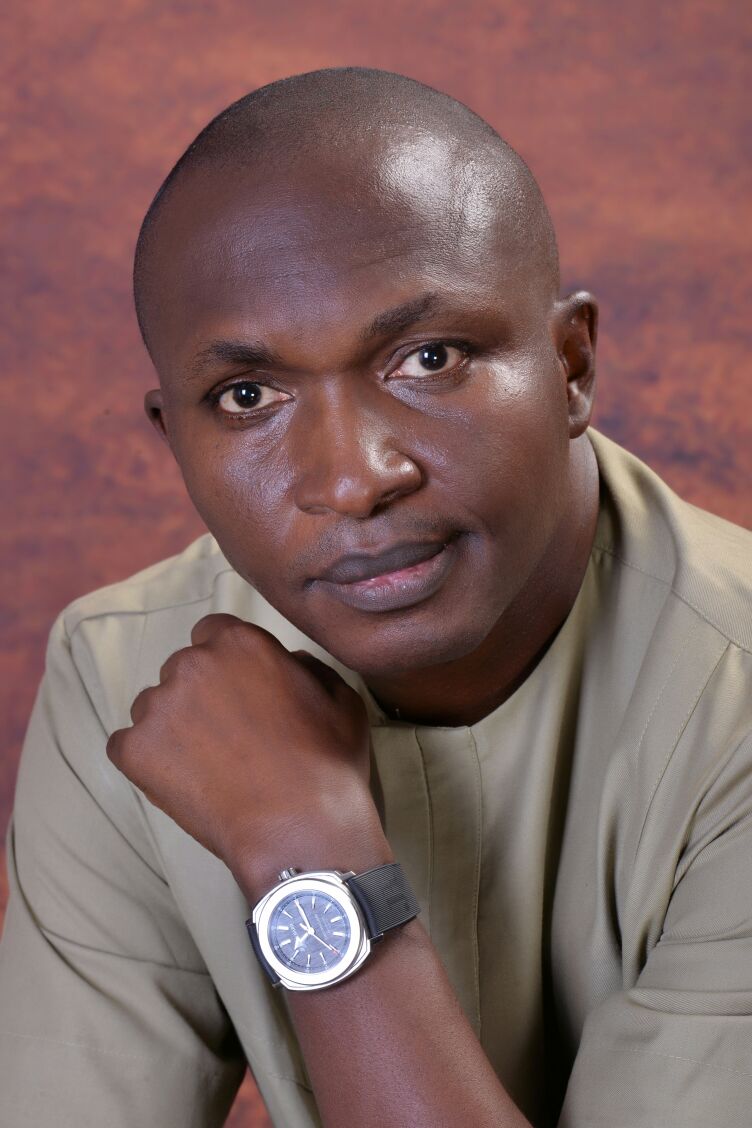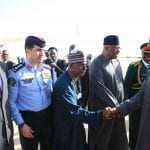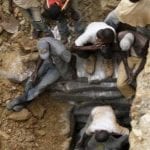By Sufuyan Ojeifo
With all its perceived imperfections, winners and losers have emerged from the just-concluded general election. But contrary to pre-election apprehension of potential massive post-election protests, there has been an eerie peace in the country. It appears the spirit that propels citizens overboard in disruptive protests to ventilate anger and rejection of polls’ outcomes has either been tamed or exorcized by a greater force.
It is possible the restrained response to the outcome of the 2019 presidential poll reflects the non-violent and statesmanlike character of the candidate of the leading opposition Peoples Democratic Party (PDP), Alhaji Atiku Abubakar, who had indicated before the poll that he would accept the result if it was adjudged to be free and fair. He had also assured his ambition was not worth the blood of any Nigerian.
Abubakar’s decision to head to the Presidential Election Petition Tribunal to challenge the poll’s outcome has been largely salutary to the achievement of the eerie peace that pervaded the polity immediately after the announcement of the winner of the election, President Muhammadu Buhari of the All Progressives Congress (APC). As it is, the frontiers of peace are expanding and there are daily opportunities that the Federal Government can take to strengthen the process of obligatory post-election reconstruction or renewal of Nigeria.
Countrywide reconstruction is imperative for rekindling confidence in the Nigeria project. It may flow with some sections of the country if the exercise is described as restructuring, which was the major plank on which the PDP candidate struck a deal that earned him the massive support of Southern Nigeria. If tweaking the concept of restructuring to align with the consensual disposition of Nigeria for reconstruction and rearrangement of the ways our commonwealth has been administered is what is needed at this point in time for peace, stability and progress, why not?
Steps should be taken for collective reassurance of Nigerians that better years that will usher in a more stable, united and much stronger Nigeria are ahead, though we have in our hands outcomes of a poorly-conducted general election. Getting there requires peace and stability of the polity. This is why the measured peace in the country is critical. It should not be taken for granted by anybody, especially President Buhari.
Abubakar’s decision to petition the Tribunal, challenging the poll’s outcome, had infused a faltering polity with some breather of sorts. There is a palliative air of equanimity that has helped to greatly discount anti-Buhari sentiments in the milieu of politics and in the consciousness of members of the political elite who exercise control over thousands of their partisans.
There is a significant sense that the electoral process has yet to be concluded until the courts dispense of the petition and deliver their verdict. In essence, this is much better than creating an atmosphere of utter hopelessness that forces anxious partisan elements to opt for self-help whether at the clear prompting of their political leaders or at the reading or misreading of the body language of the leaders.
Whereas, what is paramount is taking steps that preserve the national interest; the critical elements that are requisite in driving the ship of state in accordance, to wit – political rapprochement, accommodation and/or inclusiveness – must be deliberately deployed by President Buhari in advancing national reconstruction. The president had already hinted at an inclusive government in his victory speech. This progressive approach will always help to becalm negative agitations if sincerely adopted and pursued.
To be sure, this cannot be helped if the opposition elements take deliberate and precipitate actions that will make the nation ungovernable. The national mood and the capacity of the incumbent administration to manage the nuanced public sentiments at every point in the process will somewhat determine how the Tribunal and Supreme Court will deal with the presidential election petition. And, whatever the Tribunal and the Supreme Court decide is what, in the long run, should be paramount. It is expected their verdict will be guided by national interest.
Therefore, the three arms of government, acting responsively to the dispositions of Nigerians and other external stakeholders, must intensify effort towards ensuring that peace and stability of the polity are maintained. Nigeria cannot afford a fractured and polarized polity at this critical intersection where providence has placed on her the leadership role not only in the West African sub-region but also on the African continent.
To mismanage this sub-regional and continental leadership role in peace-building will not augur well for Nigeria’s profile in global affairs. Nigeria has the latent capacities that can be exploited to manage her internal local politics and dynamics. There is also a patriotic, Nigerian spirit that inspires a unique sense of resilience that makes citizens to endure pains and strains of a seeming unending voyage to political emancipation.
That is good for Nigeria’s growing democracy. In this context, the National Assembly must be commended for keeping up with its constitutional and oversight functions subsequent to the general election. The Federal Legislature is moving fast, as if tomorrow will not come, to wrap up consideration and passage of the 2019 budget. Granted it is doing its job, members must, regardless, be given plaudits for putting behind them, the conduct and outcome of the general election, especially those who failed reelection.
On the executive side, President Buhari must take pragmatic steps to reform the electoral process. Nigeria had passed through this way before. The nation had experienced an admixture of the good the bad and the ugly in previous presidential elections. Whereas, the 1999 presidential poll had gone down in history as the most credible in the Fourth Republic democratic governance trajectory, the 2007 election had stuck out as the most rigged to the extent that the beneficiary of the victory, Alhaji Umaru Yar’Adua, had treated the process and outcome with contempt.
To demonstrate seriousness, he initiated a comprehensive electoral reform. A former Chief Justice of Nigeria, Mohammed Uwais, was appointed to head the Committee which came up with far-reaching recommendations. Sadly, the report is characteristically gathering dust and cobwebs in the shelves of the Federal Government.
But this is not to suggest that the report is dead and forgotten. The outcome of the 2019 general election persuades revisiting the Uwais Electoral Reform Committee report for adoption, adaptation, and implementation of some, if not all of the recommendations.
President Buhari must walk his talk about Electoral reform within the context of his promised investigation of the embarrassing postponement of the scheduled 2019 February 16 presidential election. No less is expected from him. A demonstration of good faith in driving the reform of elections will earn the buy-in by Nigerians. The concerned Committee must draw input from the Uwais report.
Indeed, with the attitude of the winner and loser of the presidential election that indicates commitment to issues of peaceful coexistence and political accommodation that bind our nation, there is ample opportunity to work towards inclusiveness of all shades of opinions in the formation of the new government.
The administration has what it takes to do so. It will take Buhari’s sincerity of purpose and political will to do it. Once Nigerians are convinced the incoming administration is committed to inclusiveness, electoral reform and renewal of the country, it will not be difficult to give the administration a chance to settle in, gain traction and consolidate its policies and programmes.
This is the overall picture that a vast majority of Nigerians envisage. This is achievable as the entire nation moves sure-footedly towards 2023 to ascertain whether or not some lessons have truly been learnt from the 2019 electoral mistakes.
· Ojeifo, journalist, contributed this piece from Abuja via ojwonderngr@yahoo.com























Leave a comment